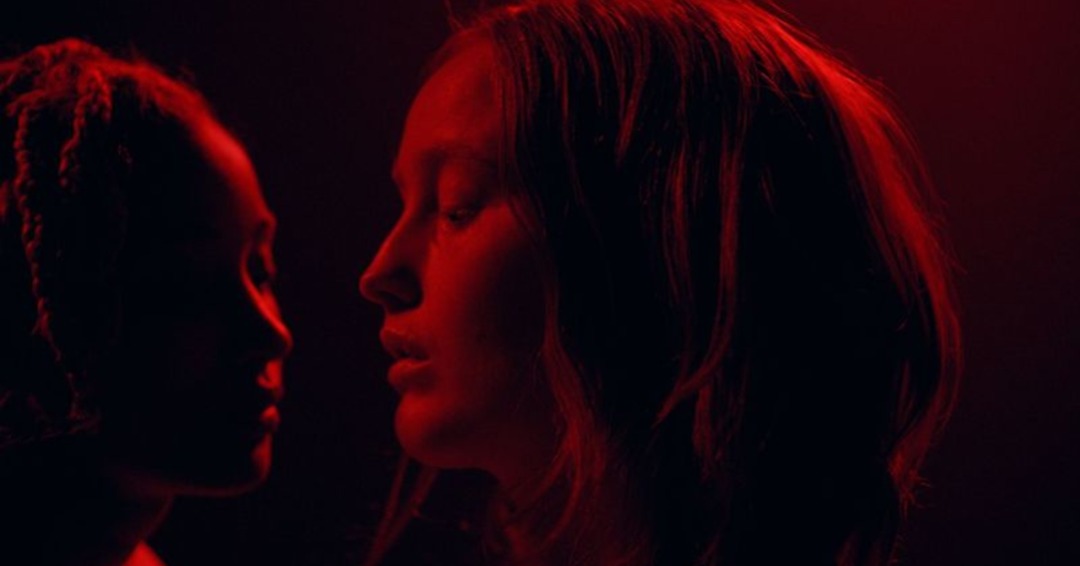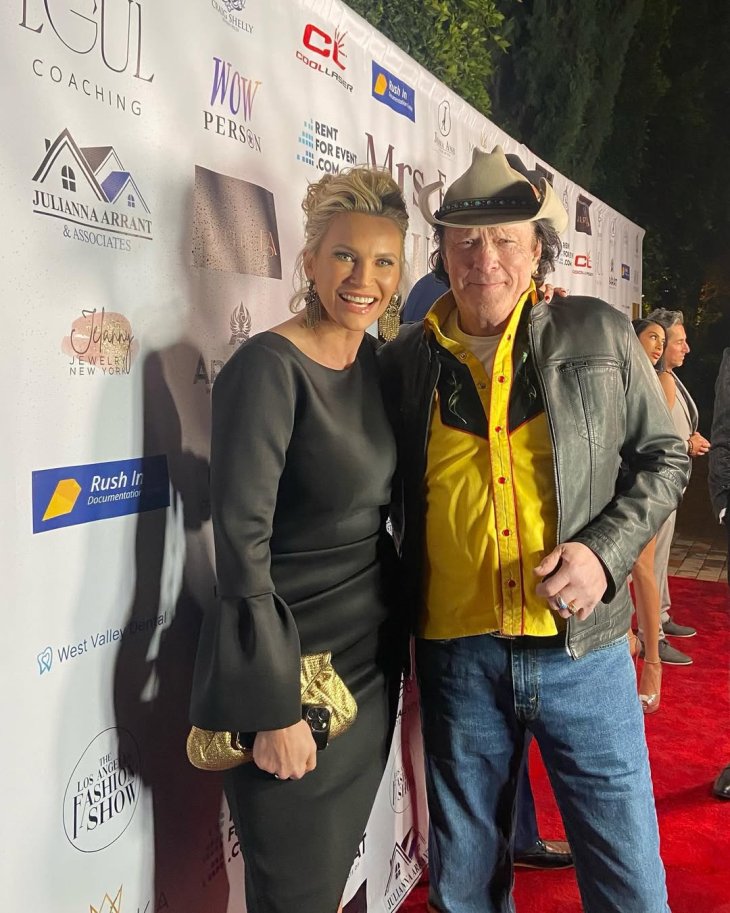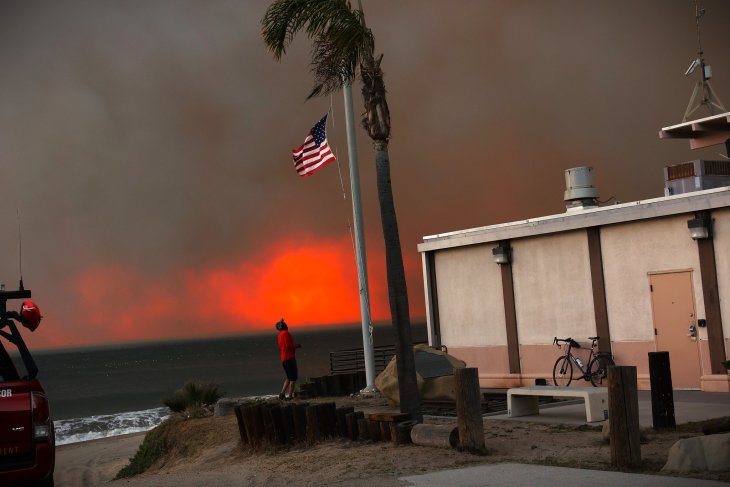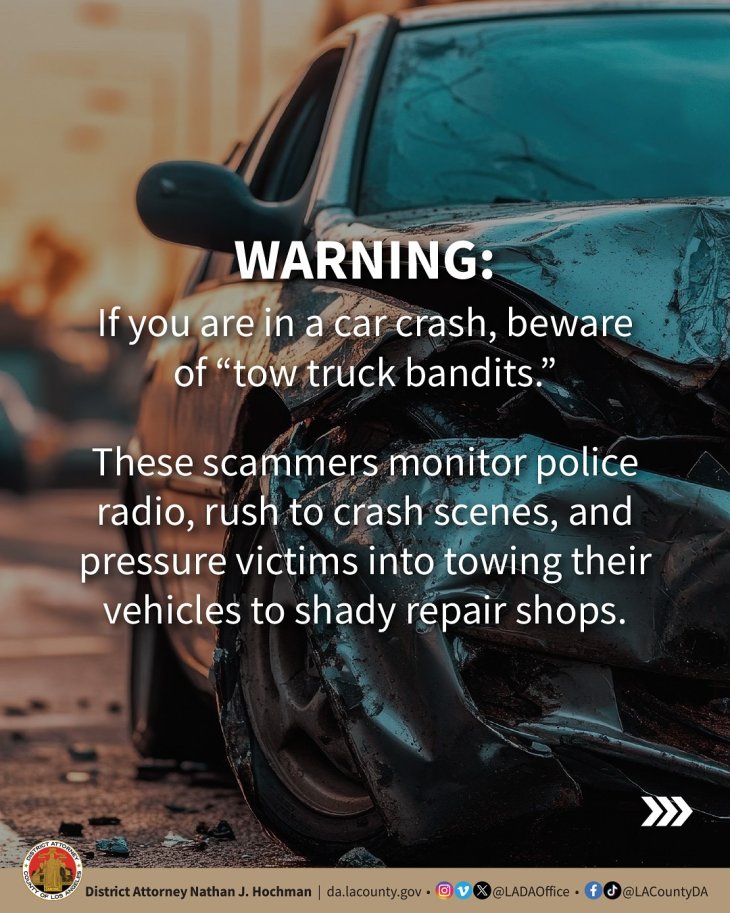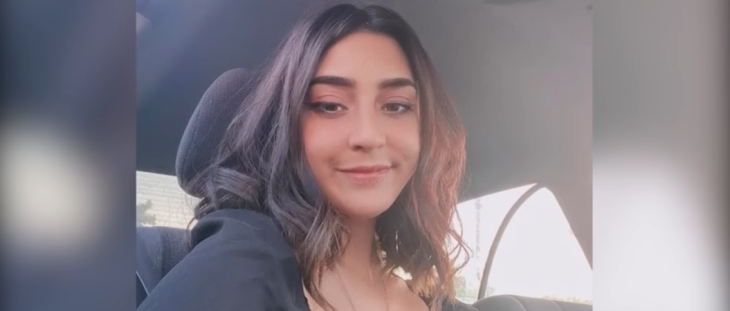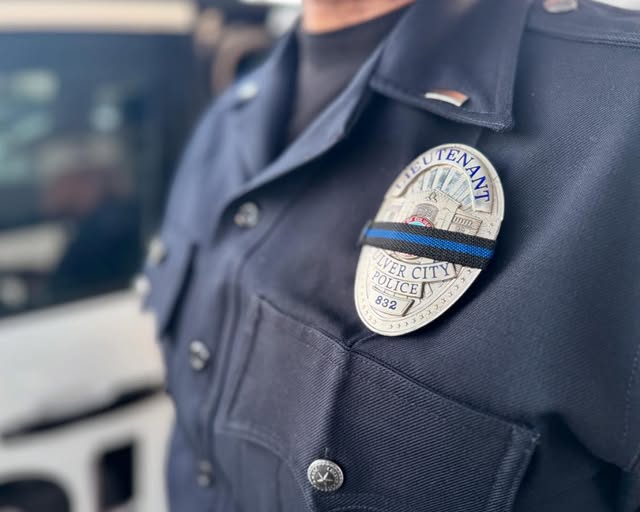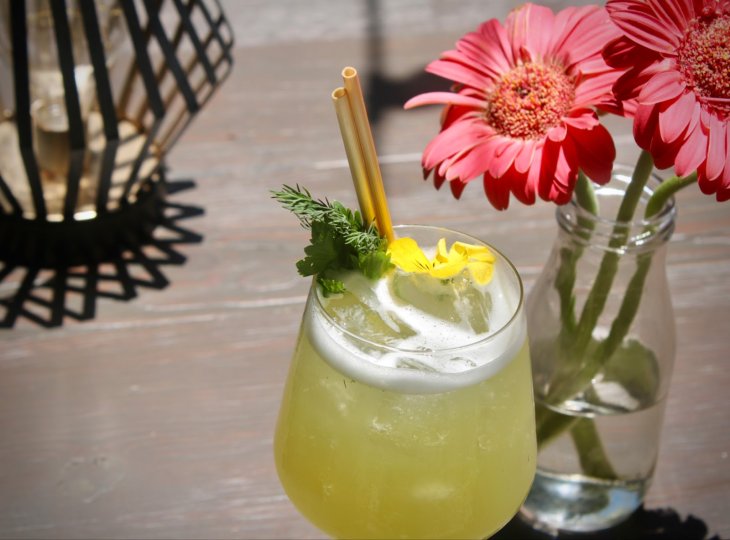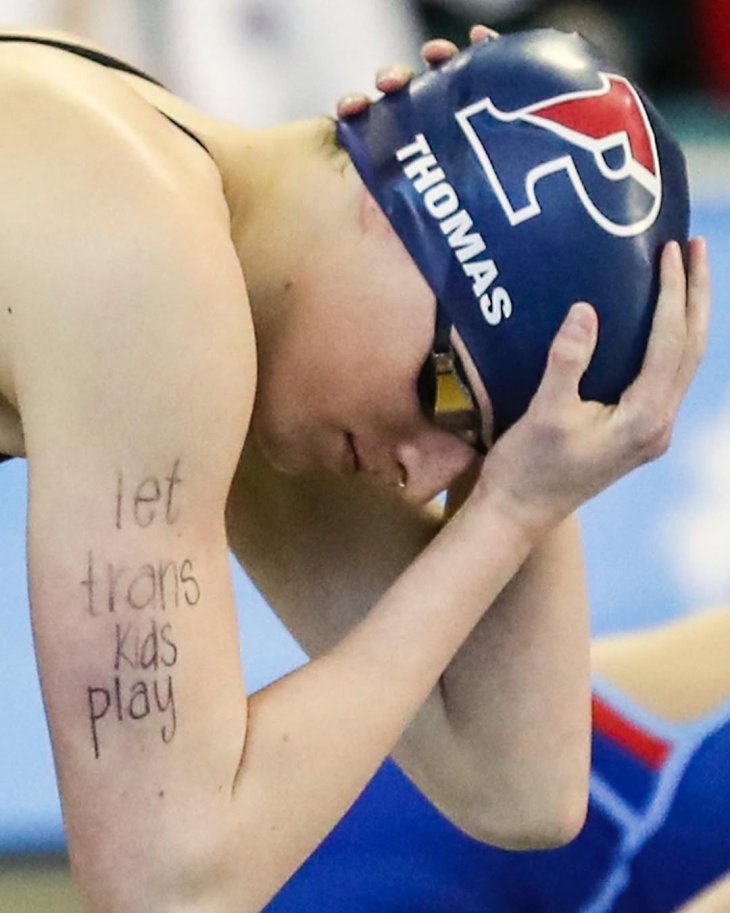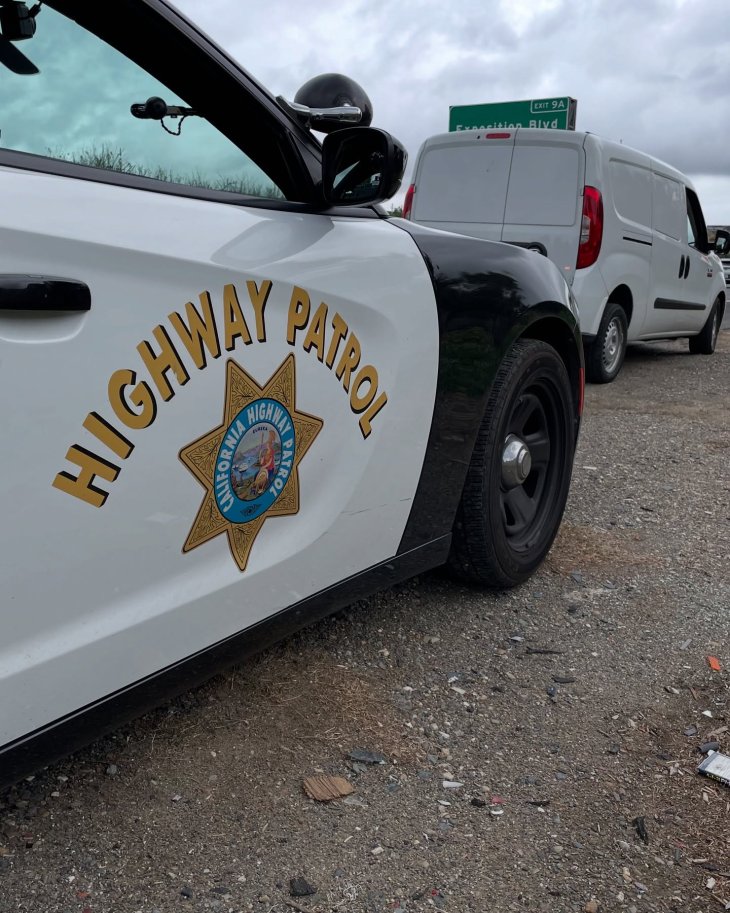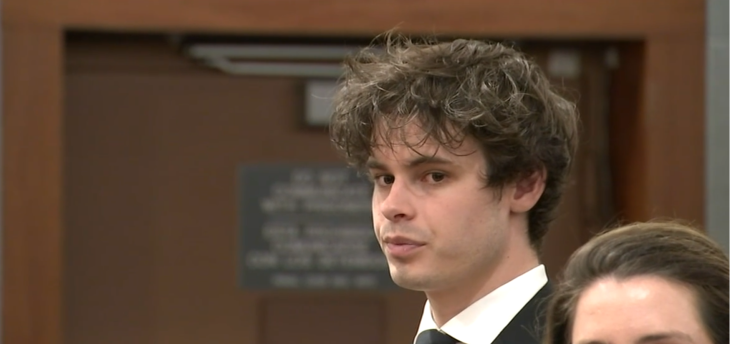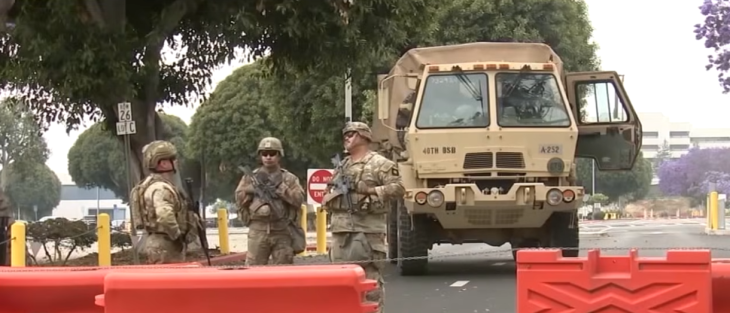We Delve Into the Origins of the Film and the Horror of Growing Up Queer in a Small Town
By Dolores Quintana
“My Animal” is a gorgeous and very personal story of a young queer woman trying to understand herself and who she is without succumbing to the temptation of letting others define who she is. It is a queer horror romance that uses the archetype of the werewolf as a metaphor for a young person’s coming of age and coming into their own power. It stars Bobbi Salvör Menuez and Amandla Stenberg in powerful performances full of chemistry, longing, and love and is directed by Jacqueline Castel.
The film was written by Jae Matthews, vocalist and lyricist of the electronic band Boy Harsher. Matthews has always wanted to make films and was surprised that this script that tells her own story as a young woman was optioned and made into a film that opened at the Sundance Film Festival. “My Animal” is currently on video on demand, and it’s really a vulnerable and deep examination of the confusion and shame felt by young queer people as they try to find out who they really are.
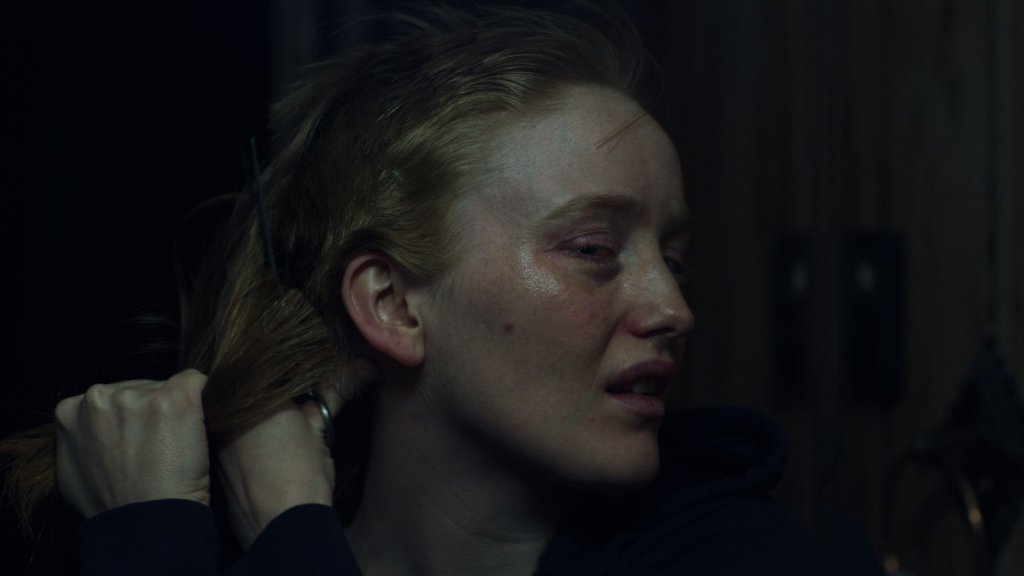
I spoke with Jae via Zoom about the film Boy Harsher and her desire to make films.
Dolores Quintana: Hello Jae. From what I understood from Wikipedia, you went to film school, where you met the other half of Boy Harsher. Is that accurate?
Jae Matthews: Kinda, yes.
DQ: Okay. I didn’t know if that was 100% accurate. So you did go to film school. So you had an interest in film to start.
JM: I’ve always wanted to, not always, not to be hyperbolic. But I went to a film summer camp when I was 16, during a period when I needed an outlet, and from that moment on, I wanted to be involved in film in some way. So, I ended up going to SUNY Purchase [College] for my undergrad and their film program. Then, I went to grad school in Savannah.
DM: So it’s natural that you got into filmmaking and in screenwriting. I was wondering if you could give me a version, not that I want you to encapsulate your entire career as a musician and 10 seconds. But could you give me a little background on your career with Boy Harsher?
JM: Absolutely. So, in Savannah, when I was in grad school, I met this person named Augustus Mueller, and he was throwing noise shows. I’m from upstate New York originally. I’m from what feels like a very remote conservative place. So, I was not really familiar with what that meant. I started going to a lot of these events, and I thought it was the coolest thing ever. I thought it was so cool. The shows were so sloppily put together. I said to myself, I need to find whoever is arranging this and help them because they clearly are a mess. And it turns out it was Gus. So we started putting on these shows together. I’ve always been incredibly managerial at spirit. So it was very helpful. We got to a place, though, where there wasn’t any local noise outfit that would bring people in. So we were thinking, well, let’s do something. I’m a writer, right, because I was in school, ostensibly for screenwriting. But you know, I would write these prose emails all the time. I would read these, and Gus would live score behind me.
That’s truly how our musical endeavor began. We caught the bug. I think that at a certain point, it was, well, let’s try to bring this elsewhere. So we started playing noise festivals at the time. There were many: the International Noise Conference in Miami and up in North Carolina. It was very cool, and it opened up a new part of me that I didn’t think I was aware of before. In fact, I had severe stage fright. Ultimately, it just turned into more of a pop project. It’s really weird because I think about this a lot, ten years later, how it turned into my livelihood and my career. It’s really, really hard to say because I know at a certain point, we started making music that was a little less noise and a little more pop and started evolving into something that was maybe more digestible, but I can’t really tell you when that was, and I also can’t really tell you, when it became so big that I could no longer do what I wanted to do, which was writing or after college, I was working on films, and I kind of was starting to enter into the AD track. I was a second AD. You know, at some point, there was this weird crossroads, and I took the Boy Harsher path, and I stopped working on indie films.
DQ: When you are on the AD track, you’re on the way to directing when you’re an assistant director. You work your way up through assistant directing. Of course, some people go through cinematography, but being an AD is usually the way. You had a short film that you did make that won an award at the Savannah Film Festival. But that was after you committed to music. So, what brought you back to film?
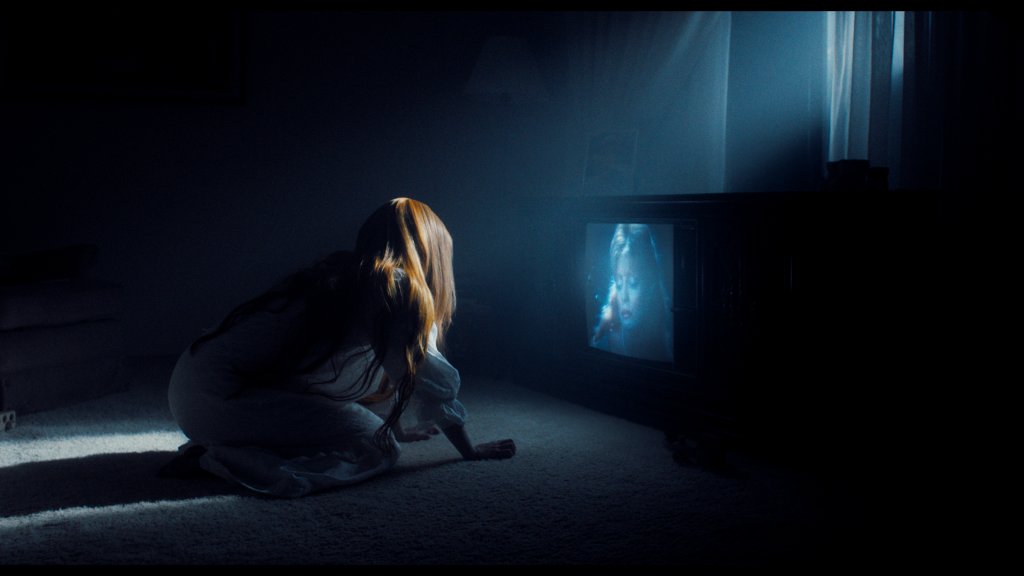
JM: Well, it is interesting, right doing this, press day with “My Animal” because that is something I wrote in 2016. A long enough time ago was when I was still writing and still on that track. I have always, even while doing Boy Harsher. My filmmaking intent has never gone away. Even in 2022, with Boy Harsher, I made a film. At this point, I’m still developing features, and I want to be involved in that as well. I would say that because we’re talking about “My Animal,” that is something I wrote, and it just needed to kind of get out. But I didn’t really write it, thinking that it would ever be made into a movie. It truly is a miracle. I just have the benefit of being so far away from how it all works that it’s still mind-blowing that it was produced as a film. I hope, and Gus and I talk about this a lot if there is a world where we can be both the functional musicians that we are, and tour as Boy Harsher and write music, but then also satisfy what is really inside of us, which is for me to write and for him also to make films and to score [films]. I think that it’s a challenge to juggle all of your interests, especially if one has become your financial stability, and it’s harder to walk away from that.
DQ: Yeah, because that’s how you keep the lights on. I totally understand that. From what I understand from what I’ve read, in 2016, you actually went back home because you had to take care of your mom after a death in the family. So you mentioned that it just felt like it was something that needed to come out of you. So, it just was like a very organic thing. Was it something that you just couldn’t stop?
JM: Correct. I mean, it’s funny because it was really overwhelming. It was such an overwhelming period. Not to say that I am one of those people, God bless them, who transfers stress immediately into a work of art, but for whatever reason, I couldn’t deny that this was a story that was happening. I was alone, too, and I’m not used to being alone. Obviously, I was there with my mother, but it was like the beginning of her ultimate descent, I guess. But I was spending a lot of time alone. I was going to this local bar that I would sneak into as a teenager, and it just really evoked this idea of a fantasy that I probably had wanted since a young age into my early 20s. Trying to understand my sexuality and my grief, which, unfortunately, are so linked in this really grotesque way.
So I was there; I was in my childhood bedroom. I was finding these relics of the past like just stupid; I don’t know, psychotic notes, all about a fixation I had on a woman or feeling very angsty about my treatment in the world. You know, very classic teenage feelings. I just sat on my computer, and I wrote the scene that, when the script was done for me, it was the first scene. Later, everything gets moved around. One thing I didn’t realize is once your script gets optioned, it will structurally change quite a bit because you’re actually having filmmakers come in saying, “Okay, now we need to craft this into a movie.” I write in screenplay format. But since it all kind of came out of me as if it were an exorcism. It’s not like I was taking into consideration the three-part structure and character arcs. So, it kind of got molded into what it is today.
DQ: I assume you’ve already seen the film; how do you like it?
JM: I saw it for the first time at Sundance. Yeah, that was pretty trippy; I would say that if I do this again, I should watch it alone by myself first. It’s a lot of processing, and the story is incredibly personal. This doesn’t detract from the filmmakers or the production, but I will admit that no matter what, I would have a hard time with this one. I would have a hard time seeing the interpretation. Writing something out of grief and your own personal growth can be incredibly powerful. But it also doesn’t really protect you from the vulnerability of not only being out there but maybe slight misinterpretations that you have no control over. Because I was not a part of production at all. I wasn’t even really a part of pre-production. So it is kind of fascinating to go and watch something.
Yeah, I’ll be totally honest. When I was watching it, I felt this incredible sadness because of the way Patti, the mother character, was portrayed. I thought, Oh, my God. I wrote this about my mom, and this doesn’t give her this doesn’t give her a fair shot at all. I’m thinking, “Man, all the tenderness around this character has been removed.” I think I’m having a very complicated relationship with that.
My mom passed away a couple of months ago, and when the movie went up at Sundance, she was very ill. So I think we all kind of knew what was coming. I don’t know. I need to forgive myself for feeling the way I did about her, I guess when I wrote the script. Then maybe I can write her a true love story and treatise that still explores her as a complicated person but shows all this compassion that I do feel for her.
DQ: Even though, when a writer writes a script, it’s going to be filtered through the sensibility of the director. So it’s always going to change to a certain extent. But even though it’s not exactly how you envisioned it, it still seemed so intensely personal to me. It was very touching. I come from a smaller town in California where everybody leaves because there’s nothing to do. Now, they have vegan food and bars, craft beer, and stuff like that, but back then, your options were to go to Los Angeles, Palm Springs, or just sit in your house. I mean, that was it, and there were only a few meeting places. So I could relate to it, maybe not to the extent of upstate New York, which I think is a little more remote. It seems so heartfelt, especially since the main character is just trying to find a way to be a person. To exist and find out who she is rather than let other people tell her who she is if that makes sense.
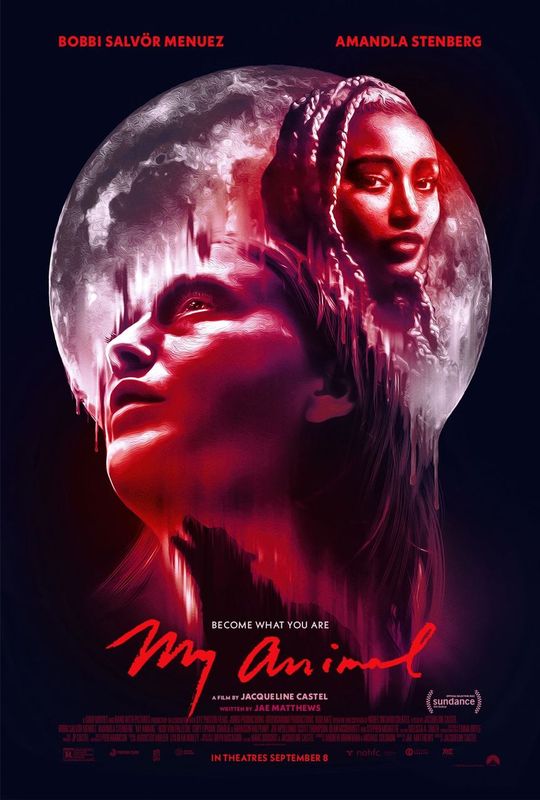
JM: Yeah, absolutely. I mean, not only did Bobbi Salvör Menuez do such an amazing job and was able to transfer a lot of what you’re experiencing, right? The movie is so much about being a certain age and feeling a certain type of repression that doesn’t allow you to love yourself. When I watched it, I was watching Heather, played by Bobbi, but struggling with self-hatred and internalized homophobia and that disgust that is so hard to shake even as adults, right? I’m writing from the perspective of me 15 years ago or more, and I still understand and feel that disgust or that self-hatred, or the shame. I think it’s a shame. Yeah, shame is a big part of “My Animal” and a big, big part of Heather and Heather transforming into a literal monster. It’s cool because when we talked about your story being filtered through someone else, then the magic of it, too, is your story being filtered through acting. I don’t know; that was magical to see that and see the way the characters looked at each other. I’m like, yeah, they are looking at each other the way you know, or it’s like, that’s when it felt real. I was really, really into that.
DQ: The performances were excellent, but you gave them something to work with because a lot of films about teenagers are mostly a bit more facile. They’re more on the surface. Maybe a film, speaking of werewolf movies, like “Ginger Snaps,” that tackles some of the stuff that’s a little more difficult for people to understand. Okay, if you remember, this is how you felt.
JM: Right?
DQ: Yeah. You were very confused.
JM: I love “Ginger Snaps.” and I love that it keeps coming up. Like, obviously, why not? But if we can compare them, the hope for “My Animal” is that you’re able to feel that angst and pain and shame and confusion filtered through this story. And then, you watch “Ginger Snaps,” and you’re thinking, “Yeah, this is a romp. This is fun. We’re on the roller coaster.” But with “My Animal,” I really, really want people just to be in it and experience some of that loneliness and isolation. That is kind of what it’s about.
DQ: That’s the thing, it was very successful. Just that whole feeling of being so in a world that doesn’t understand you and just being alone in a wilderness. On the whole, that was one of the things I enjoyed most about it, and using the werewolf archetype is how Heather’s been squeezed into this ball of rage in a way. That feeling of not being able to control it. Because, I mean, as a teenager, you haven’t learned how.
JM: Correct.
DQ: When you get to be an adult, that’s when you learn if you experience the feelings, and that’s part of it. It has this quality of loneliness and isolation that is really beautiful. I think that it’s really beautiful to see that level of exploration. People believe that only adults are worthy of that type of exploration, but teenagers have their own interior lives, as do children, but I don’t think it’s gotten that level of examination. There aren’t that many films that have quite that level of exploration of what it’s like to be inside yourself as a teenager.
JM: A lot of times, at least in my personal experience, from age 14 to even 22, that’s when you’re making the blueprint for who you will be as an adult when you are starting to understand yourself and have those breaking points. I think that thematically, for me, it’s incredibly interesting, right? Because one wrong step and you can turn into a repressed person who is so fearful of their true identity and so fearful of the world. It’s just interesting.
DQ: You know what you were saying about your mother. Heather doesn’t feel understood, but her mother kind of knows what’s going on with her. I think part of the part that was emphasized with the characters was that you can even if you love someone, particularly your parents, you can have a lot of feelings of anger and resentment towards them, and they can have that towards you. Because there’s that mutual kind of head-butting, especially when you’re a teenager, leads to that type of anger and resentment. I know it well, but there’s that familial bond and that parental relationship, that even no matter how angry you get at each other or how hurt you are by their actions, there’s still always that love there. I did want to mention that, at the end, I saw some of that. I don’t want you to think that there isn’t that layer of it because you can see that, even though obviously they have the problems between them, there’s that bond. If that makes sense, I think that was important too.
JM: It does, it makes sense. I think where I am just as a person, I am coming to terms with the film and my text, is I’m looking through a lens of guilt. This is not uncommon for people who have lost their parent, especially ones that have a complicated relationship. I wish I could be able to be one of those children who was, yeah, we had the healthiest relationship, and we loved each other deeply, and they died, and that hurts. But I’m able to have a reflection that’s honest. I think for me, I’m still very much processing. So the lens that I’m looking at in that relationship is incredibly coded, very vulnerable, and probably, honestly, not that accurate.
DQ: Well, I there’s, there’s a thought about storytelling because I think we’re all storytellers, as we process the sensory images that come in through our eyes, our ears, etc. We’re interpreting how things go. We’re all telling ourselves a story and what we believe about our life, and sometimes we don’t have all the information. In a way, human beings are always unreliable narrators in the story of their own lives. It does depend on where you are in your life and in the process of whatever you’re dealing with.
JM: Totally. I think when I wrote this, I clearly was just living in grief. I was also confronted with my mom. I knew she was an alcoholic, but her dementia was really when that began. The person I was when I wrote this was in mourning and confused, almost a child, because I was in my childhood bedroom and sleeping in a twin bed. I recognized I was in a different place then. It’s just tough. Life is tough, and relationships are hard, crazy, and confusing. So you’re right. We’re storytellers because we’re trying to figure out, we literally are trying to figure out what is going on.

